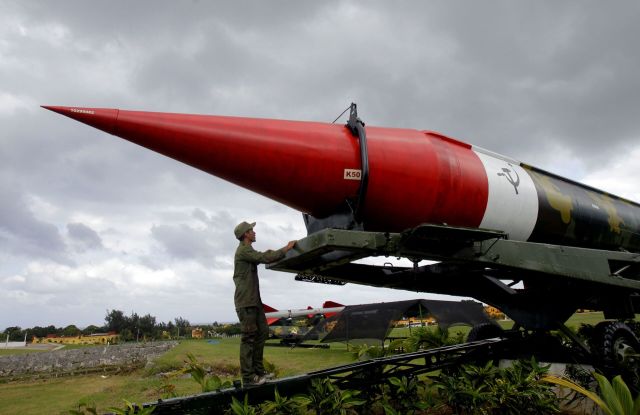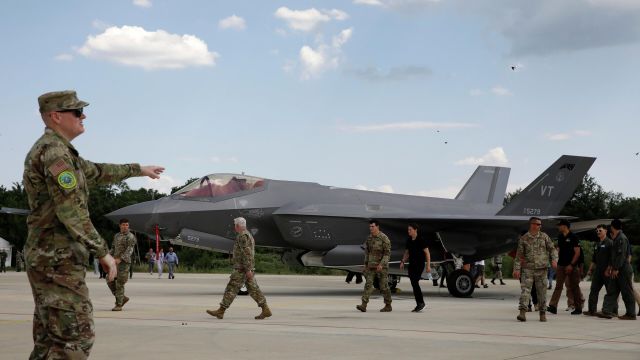MOSCOW, 4 Sep — RIA Novosti, Andrey Kotz. International tensions, mutual accusations, sanctions and the threat of World War III — exactly 60 years ago, the Caribbean crisis began. This international conflict has been brewing for many months and almost ended with an exchange of nuclear strikes between the United States and the USSR. Fortunately, the situation was resolved diplomatically. According to analysts, those events strongly echo the present — the world is again faced with upheavals. About how history repeats itself — in the material of RIA Novosti.
On the verge of a fight
Despite the fact that the main events took place in mid-October 1962, the formal date of the beginning of the Caribbean crisis is September 4. It was on that day 60 years ago that President John F. Kennedy warned Fidel Castro that Washington was doing its best to fend off the Cuban military threat in its zone of interests. In Moscow, this statement was considered in fact a preparation for intervention and unequivocally stated that if the United States invades Cuba, a global conflict will begin. The Cold War adversaries made it clear to each other that further escalation would lead to a big fight.
The nervousness of the Americans could be understood. At the end of August 1962, a U2 reconnaissance aircraft photographed equipped positions for S-75 anti-aircraft missile systems in Cuba, as well as Soviet military personnel. Earlier, intelligence reported to the White House that the number of ships and ships under the flag of the USSR arriving in Cuba on a permanent basis has increased several times. In full swing, in an atmosphere of the strictest secrecy, Operation Anadyr was underway to transfer an impressive Soviet military contingent to Cuba. Washington understood that the enemy was up to something. But I didn't know what it was.
The first land-based R-12 medium-range ballistic missiles arrived in Cuba on September 9, 1962. However, the Americans discovered that a full-fledged missile division was unfolding at their side only on October 14. On this day, Major Richard Heizer, who piloted the U-2, photographed part of the Soviet P-12 launch positions. When President Kennedy became aware of this two days later, an acute phase of confrontation began. On both sides of the Atlantic, they prepared to press the red button.

A mock-up of a Soviet missile at the Morro-Cabana military complex in Havana, Cuba Image Source: © AP Photo / Ismael Francisco, Cubadebate
American historians blame Moscow for everything. However, the facts suggest the opposite. Back in 1961, the Pentagon began deploying PGM-19 Jupiter medium-range missiles with a range of 2,400 kilometers on the territory of Turkey. Soviet strategists calculated that the cities of the European part of the USSR were practically defenseless in front of these weapons. The only way out is to achieve nuclear parity by placing strike systems in Cuba.
The world was saved from a new war by the titanic efforts of American and Soviet negotiators who managed to find a compromise solution. Soon the Jupiter rockets were taken out of Turkey, and the USSR removed its P-12s from Cuba. The world community exhaled a little and for decades carefully monitored that such a crisis would not happen again. However, for 60 years, the lessons of history, apparently, have been forgotten.
Historical analogies
Today, one can often find a comparison of the Caribbean crisis with the current confrontation between the United States and its allies with Russia. Former Virginia senator and retired colonel Richard Black wrote on social networks that Moscow's reaction to NATO's expansion to the east resembles the reaction of the American elite who learned about nuclear missiles in Cuba. "But then the leaders of the countries managed to agree. Now Washington does not intend to offer a reasonable solution to the conflict, and Moscow is simply forced to take steps to protect its interests so that its existence is not threatened," Black wrote.
The expert admits that the North Atlantic Alliance would sooner or later deploy its infrastructure in Ukraine, including nuclear weapons, which would literally be on the Russian border. Actually, Moscow, having launched a special military operation, proceeded from the same premises as the Soviet government in the early 1970s - to escalate for the sake of de—escalation. In other words, dramatically raise the stakes so that the opponent loses the desire to play.
Sixty years ago, Moscow tried to negotiate. She protested against American missiles in Turkey, passed notes to Western posts, and was indignant at the UN. But Washington, accustomed to acting from a position of strength, was not very impressed. The United States sat down at the negotiating table only when Soviet nuclear missiles were deployed at their borders.
The American destroyer "Barry" and the Soviet turbine ship "Metallurg Anosov" during the Caribbean crisis Image Source: © AP Photo / Pool
And in the XXI century, the Kremlin has repeatedly spoken on various international platforms about the inadmissibility of NATO expansion and attempts to isolate Russia. Of course, no one was listening. At the end of last year, Moscow transmitted to Washington and Brussels the requirements concerning the global security system, but they did not pay much attention to them either.
Moscow was looked at seriously only on February 24. However, this time, according to the Kremlin, Washington is in no hurry to sit down at the negotiating table.
Peace for decades
Despite the obvious historical analogies, there are more differences between the Caribbean crisis and the current situation. Firstly, in the 70s of the last century there was no Internet and social networks, information was transmitted much slower. The opponents did not have the opportunity to wage an information war on the same scale as today.
Secondly, in the modern world, a full-scale nuclear conflict is less likely than in the second half of the twentieth century. As Vladimir Putin has repeatedly noted, there can be no winners in such a war and it should never be unleashed.
Thirdly, according to experts, the Kremlin today has very few levers of influence on the White House — much less than the Soviet Union had. As well as technical capabilities.
Finally, analysts say, Russia is much more tightly integrated into the international economic system than the USSR. Because of this, the scenario of complete isolation failed, Financial Times columnist Edward Luce notes.
Nevertheless, Washington and its allies do not intend to slow down yet — the other day President Joe Biden announced the allocation of the largest package of military assistance to Ukraine in the amount of almost three billion dollars.
"The continuation of the armed confrontation is destructive for Ukraine, and the responsibility for the consequences will be borne by Western countries," American historian and philosopher Noam Chomsky said in an interview with Die Welt newspaper. — In any crisis, there are two scenarios: diplomatic and non-diplomatic. If we follow the second path, there will only be further blood and sacrifices."
At the same time, in his opinion, negotiations — if they are brought to an end — can ensure peace for years to come. If not for decades.
Andrey Kotz

